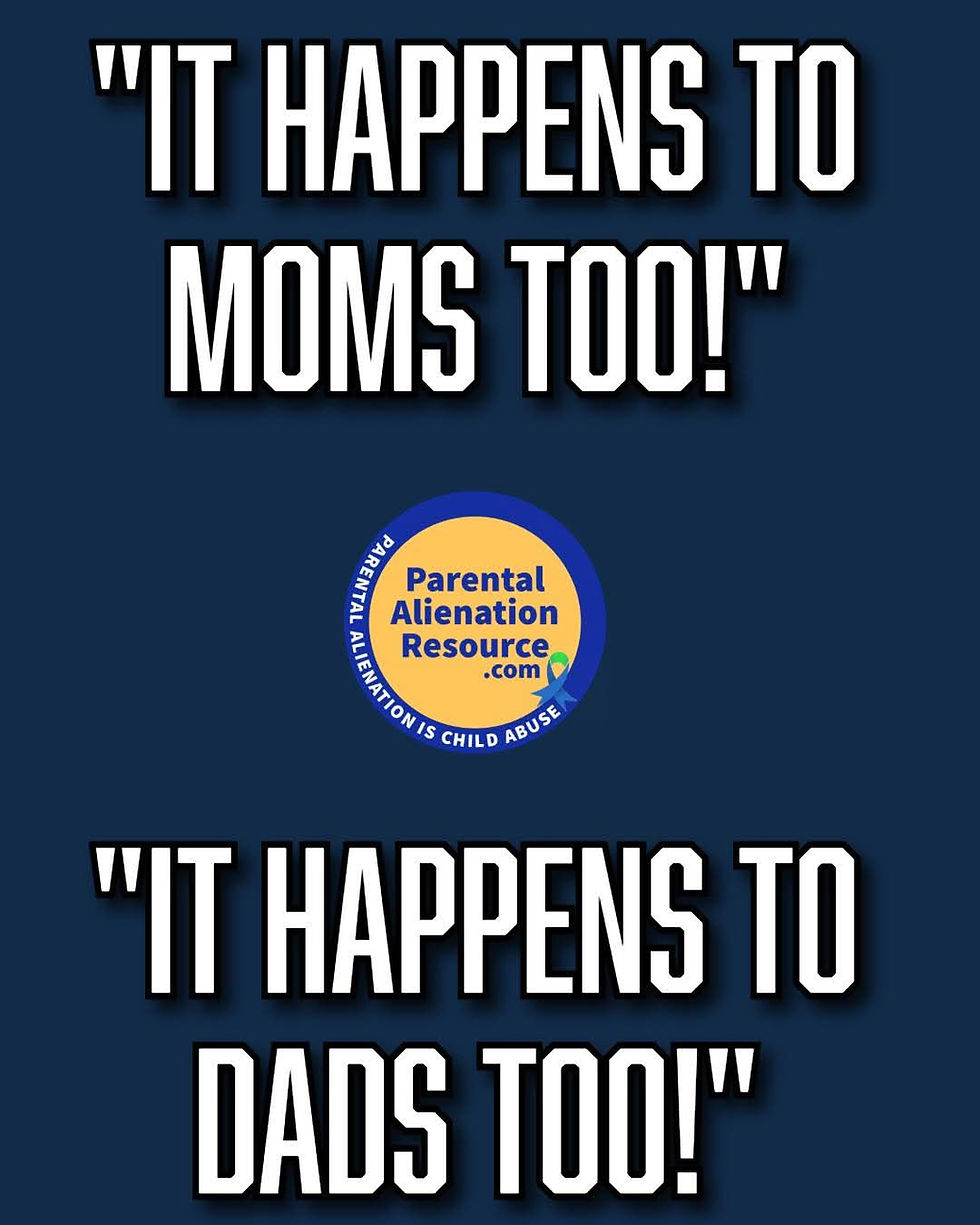How Can Extended Family Members Contribute to the Alienation Process?
- Parental Alienation Resource

- Dec 6, 2023
- 1 min read

Extended family members can contribute to the alienation process between parents in several ways.
When extended family members hold biases or resentments towards one parent, they may reinforce negative perceptions about that parent in front of the child. By repeatedly expressing negativity or hostility, they can influence how the child views and interacts with the targeted parent.
Extended family members who support the alienating parent's actions can inadvertently validate and encourage those behaviors. They may offer praise or support for the alienating parent's efforts to undermine the other parent's relationship with the child, creating a sense of validation for the alienation process.
Extended family members might spread false information or rumors about the targeted parent, further tarnishing their image in the eyes of the child. By disseminating negative narratives or falsehoods, they contribute to the alienation by creating doubt and eroding the child's trust in the targeted parent.
Extended family members can actively limit contact or access to the targeted parent. For example, they may organize family gatherings or events without inviting the targeted parent, intentionally excluding them from important family moments. This exclusionary behavior reinforces the idea that the targeted parent is not part of the family unit, further alienating the child.
It's important to recognize that not all extended family members contribute to parental alienation, and some may even act as positive influences by promoting healthy relationships between the child and both parents. However, when extended family members engage in these alienating behaviors, it's vital to address the issue and encourage open communication to mitigate the negative impact on the child and promote healthy parental relationships.









Comments